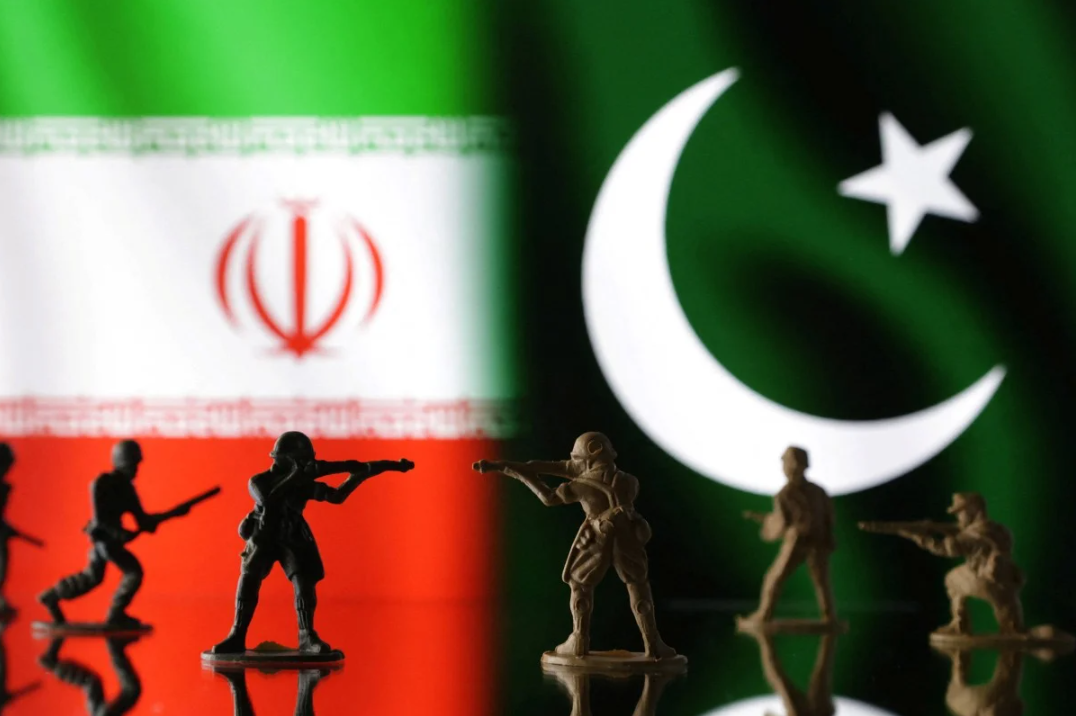Iran’s attacks in Pakistan, Iraq to avoid ‘losing face’ risk irking China, wider confrontation
SOUTH CHINA MORNING POST
China has key economic interests in Pakistan and may ‘look dimly on attacks’ in the Balochistan province by Iran
Tehran may have miscalculated that its attacks in Pakistan would not trigger retaliation from Islamabad, analysts say
Iran’s role in the deepening Israel-Gaza war has been curiously understated and through other actors but over the past week, a slew of retaliatory attacks it undertook directly is prompting renewed speculation about Tehran’s strategic stance.
Whether China may again be called upon to mediate between Iran and its neighbours is also a question being asked as analysts believe Tehran might have miscalculated when it conducted air strikes against non-state actors in Pakistan and Iraq earlier this week because it assessed neither country to have the willingness to retaliate.
But Islamabad responded in kind on Thursday by bombing a haven in southeast Iran of an ethnic Baloch rebel group, which has fought Pakistani security forces for the last 20 years.
…
Analysts said Iran’s attacks on Iraq, Pakistan and Syria were meant to send signals to its adversaries.
One message was that Iran is “a regional power that has the capacity to act if it judges it necessary to do so”, said Guy Burton, an independent analyst who previously taught international politics at the University of Kurdistan Hewler in Arbil, the northern Iraqi city targeted by Iran on Monday.
The Iranian air strikes also highlighted some of the region’s weaknesses, including the inability of Iraq to hit back.
Iran’s third message was that “it is able to hit indirectly at American and Israeli interests, while probably signalling that it doesn’t want to make this a more direct confrontation”, he said.
Practically, the Iranian regime is “in no state” for an escalation of conflict and the consequences that might bring, especially given its relatively poor economic state.
“Indeed, there must be some calculation going on inside Tehran about how far they can push confrontation without risking a domestic spillover in the form of opposition that might affect the regime’s position and stability,” said Burton, who is the author of China and Middle East Conflicts: Responding to War and Rivalry from the Cold War to the Present.
Coming within days of US and UK air strikes against the Houthis “not only blunts” Western criticisms of Iran’s air strikes but also “points out that two [opposing sides] can play at that game”.
…
“Iraq is still a weak state, unable to push back against outside intervention whether by other states or non-state actors – some of which in the form of the Iran-backed militias also have a domestic base and constituency,” Burton said.
Given that the bulk of China’s investments in Iraq is located in the south of the country, rather than in the Kurdish north hit by Iran, Beijing may be less inclined to get involved diplomatically.
Instead, the Chinese government would be “more likely to look dimly on attacks” in Pakistan’s Balochistan province, “especially if it judged them to affect Chinese interests there”, said Burton.
…
Even if China did decide to “rein in the Iranians”, if only where it saw its interests directly threatened, it might “find some pushback” with Iran playing its India card.
Just as China is developing Gwadar port in Pakistan, Iran is looking to develop its own nearby Chabahar port with India’s backing, following a deal struck between the two governments on Monday.
“So Tehran might well see any spanner in the works at Gwadar as an opportunity for them and Chabahar,” Burton said. “It’s not the case that the Chinese and Iranians see eye to eye on everything.”
TO READ THE WHOLE ARTICLE, CLICK HERE.
